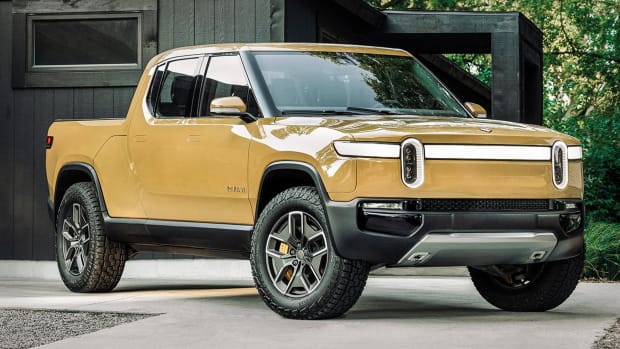
In less than two years, Rivian shareholders have gone from enthusiasm to tears.
In mid-November 2021, just days after a spectacular IPO on Nov. 10, the electric vehicle manufacturing startup, backed at the time by Amazon (AMZN) and Ford (F), would see its market value reach $150 billion.
The investment was a very good move for the shareholders. They had bet on the group that could finally challenge the dominance of Tesla and Elon Musk.
Ford (F) sold its stake last year. And the Rivian (RIVN) bet now appears more and more like a losing proposition.
The market cap is currently at $12.6 billion. And it might decline further after Rivian reports first-quarter results, scheduled for May 9, unless the Irvine, Calif., carmaker delivers on many fronts.
EV Car-Price War and Consumer Credit Crunch
Rivian, like other EV upstarts, seems to have a demand problem due to a combination of factors. The price war launched by Tesla (TSLA), which has lowered the prices of its vehicles six times this year, makes Rivian's models less competitive.
The group, which is having difficulty ramping up its production, cannot afford to lower its prices when its production costs are huge and its profit margins are already very narrow.
Consumers are also facing a credit crunch due to the Federal Reserve's inflation-fighting interest-rate rises. This policy makes car loans more expensive. Average interest rates for new-car loans went from 4.4% in February 2022 to 7% in February 2023, according to Edmunds.com. Average interest rates for used-car loans went from 7.8% in February 2022 to 11.3% in February 2023.
Rivian vehicles also no longer benefit from the federal tax credit of $7,500 granted to clean vehicles. One of the main reasons is that the U.S. Treasury Department requires that for an EV to qualify for the full credit, a significant percentage of the key minerals that go into its battery must be extracted or processed in the U.S. and more than half the battery manufacturing and component assembly must take place domestically as well.

Rivian
Rivian thus is confronted with this simple reality: Its R1T pickup truck is base-priced at $73,000, compared with $59,974 for the Ford F-150 Lightning, its direct competitor.
For consumers concerned about saving money in this period of uncertainty, the choice seems simple. What could help save Rivian would be if the delivery times were very long at Ford because the demand for the F-150 Lightning is very high. But at the same time, Rivian is struggling to increase its production rates.
Tesla's Cybertruck, another serious competitor, should also arrive on the market in the third quarter at a price not yet determined. That could complicate things even more for Rivian.
Analysts Call for Rivian to Raise Fresh Funding
In the May 9 report investors will undoubtedly be looking for an update of the order book to get a better understanding of the demand for the company's cars.
Such data are less than likely to appear. The young carmaker, which also produces the R1S SUV and the EDV van at its Normal, Ill., plant, recently ended its tradition of disclosing its preorder book at the end of each quarter. At the end of November, the group had 114,000 orders but also a "net preorder backlog that extends into 2024."
Rivian declined to comment.
In addition to demand, concerns also surround production. After missing its target last year, Rivian has been very cautious for this year, announcing a target of 50,000 vehicles to be produced. But internally officials have circulated the figure of 62,000 units. If Rivian indicates that 62,000 units are possible, this would suggest that the supply chain problems, which have held it back for more than a year, are in the process of being resolved.
On April 3 Rivian said that in the first quarter it produced 9,395 vehicles at the Normal plant and delivered 7,946 vehicles in the same period.
Faced with the current uncertainty, analysts are mostly pessimistic, downgrading Rivian’s stock in the medium term.

Rivian
Piper Sandler analyst Alexander Potter, for example, slashed his price target to $15 a share from $63. Potter noted that Rivian would have to raise more than $4 billion to fund its operations until 2025. The carmaker has been burning cash rapidly, with a negative free cash flow of more than $6 billion last year.
"Rivian shouldn't abandon its strategy, but until funding is addressed, we think Rivian will keep trading at book value," Potter argued.
Get investment guidance from trusted portfolio managers without the management fees. Sign up for Action Alerts PLUS now.







